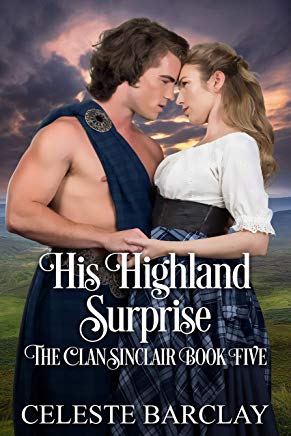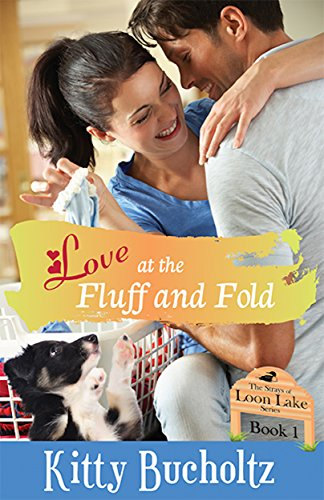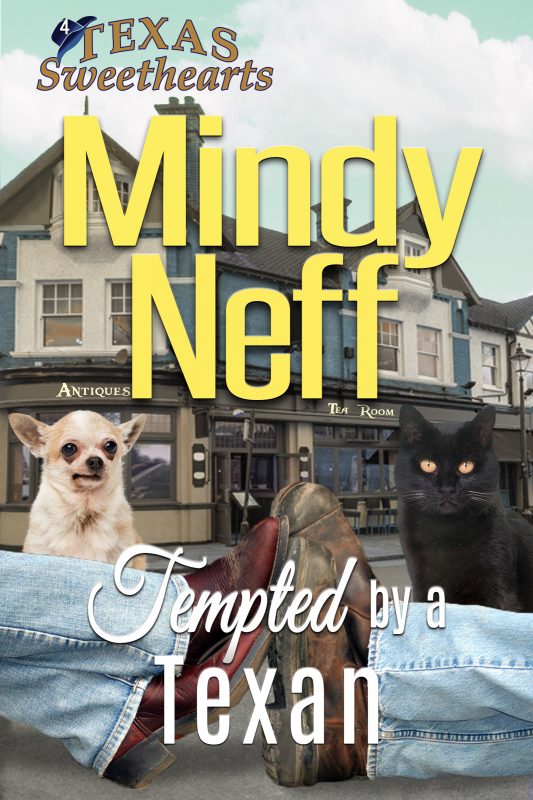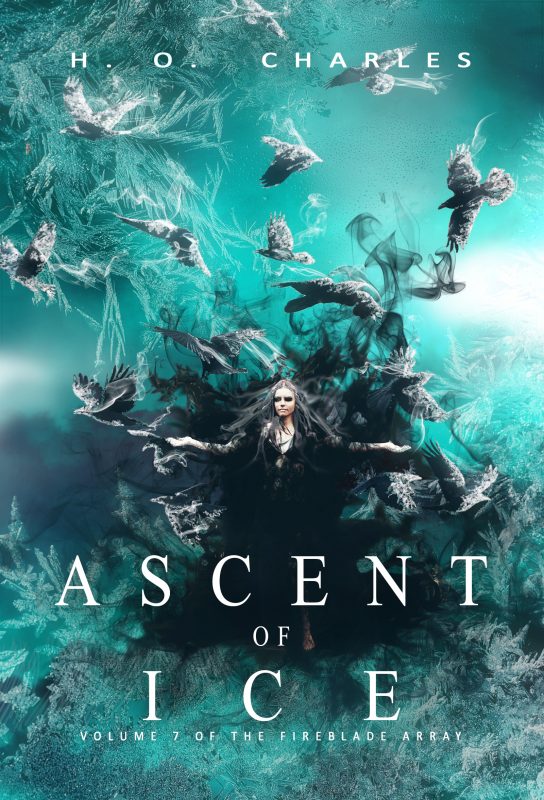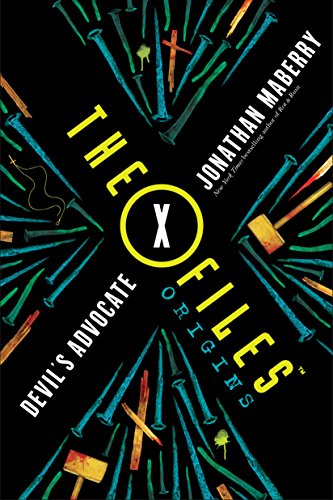Kitty Bucholtz May Featured Author
May 28, 2018 by Kitty Bucholtz in category Featured Author of the Month tagged as Kitty Bucholtz, romantic comedy, superheroesThe Featured Author of the Month is Kitty Bucholtz.
Kitty grew up in Northern Michigan, so naturally she uses that area as the setting for most of her stories. She went to college in Traverse City, met and married the love of her life, and waved goodbye to everything she knew when she and her husband John struck out for parts unknown.
Their adventures included going back to school, changing careers, and traveling Down Under. They spent three years in Sydney, Australia, where Kitty earned her Master of Arts in Creative Writing degree from University of Technology, Sydney, while John made a penguin named Mumble dance. Only God knows where they’ll wind up next – but they’re pretty sure it will be another cool chapter in their adventure!
Kitty decided to combine her undergraduate degree in business, her years of experience in accounting and finance, and her graduate degree in creative writing to become a writer-turned-independent-publisher. She writes romantic comedy and superhero urban fantasy, often with an inspirational element woven in. She loves to teach and offer advice to writers through her WRITE NOW! Workshop courses and the new WRITE NOW! Workshop Podcast.
For more information on Kitty, please visit her website http://kittybucholtz.com/
BOOK REVIEW: Beyond Control by Kat Martin
May 27, 2018 by A Slice of Orange in category Book Reviews by Veronica Jorge, Things That Make Me Go Mmmrrh . . . by Geralyn Corcillo tagged as Afghanistan, bestseller, Beyond Control, books, domestic abuse, Kat Martin, marines, military, new release, novel, novels, on the run, ranch, romance, stallion, Suspense, Texas, thrillerBeyond Control by Kat Martin
When Victoria Bradford got engaged, she told herself to give love a chance. Six months later, she’s on the run from her angry, abusive ex-fiancé with her four-year-old daughter and nowhere to go.
Seventy miles north of Dallas, the Iron River Ranch is pretty much nowhere. That’s what its new owner, Josh Cain, wanted when he came back from Afghanistan. Big skies, quiet nights, no trouble.
One look tells Josh the pretty redhead with the adorable little girl will give him trouble of the most personal kind. But he’s seen trouble before, and he doesn’t scare easy. Not when “accidents” start happening around the ranch. Not when Tory’s best friend back in Phoenix is abducted and brutalized. Not even when it looks like their current problems are only the tip of the iceberg.
But if he gets too close to fierce, determined Tory, Josh knows his nights are going to be anything but quiet. And that’s one possibility no amount of training can prepare him for . . .
In this book, Kat Martin weaves together compelling characters and well-crafted plots, all to culminate in a thrilling, immensely satisfying ending.
When Josh Cain meets Tory Ford (aka Victoria Bradford), he quite likes her fiery red hair and cute behind. But that’s after we’ve already seen Tory’s true worth: her strength and courage shine through in the opening scene when she stands up to her monster of a fiancé Damon, a man who believes he owns Tory lock, stock, and barrel. Tory survives his nearly fatal beating, escapes, and keeps on surviving.
Once she gets to the Iron River Ranch, the attraction between Tory and Josh simmers and sizzles. We get heart-wrenching and thought-provoking glimpses into Josh’s heroic military career, a career that haunts him… in more ways than one. We meet the tough and charming Clara Thompson, the baby-sitting neighbor who can be trusted to the hills and back. We get to know the eminently likable Cole and Noah, former marines who work on Josh’s ranch. And we are introduced to Satan’s Star, a troubled stallion who has suffered, like Tory, at the hands of an abusive man.
But this warm, romantic, and exciting story becomes chilling as chapters from Damon’s POV begin creeping in as he hunts for Tory. He beats women, rapes women, and kills with abandon. When Damon gleefully and arrogantly kidnaps and rapes one of his victims, this scene is intercut with the sexual culmination of the flirtation between Tory and Josh. While the juxtaposition of sickening brutality with incandescent romance is viscerally disturbing, it is also ingenious in how it undercuts the romance, shifting the focus of the book away from the relationship between Tory and Josh and onto the battles both are facing as they try to elude and conquer the bad guys in their lives. The lovers must stop the villains and the story kicks into hyper-drive.
Josh’s friends and family circle around Josh and Tory, helping them both ward off and fight the evil blasting at them from all directions. The camaraderie is heartwarming; the suspense is so compelling it will have you flipping pages with the speed of a stallion.
And the ending? It is breath-taking, comprised of brilliance and absolute perfection in the narrative. And even to hint at it would be to do this tightly woven story a disservice.
Beyond Control is available in two days, on May 29. Happy reading! Pre-Order here.
 Geralyn Corcillo is not only an avid and eclectic reader, but she is also the author of romantic comedy and women’s fiction novels, novellas, and short stories. Drop her a line– she loves to connect with readers on Facebook and Twitter!
Geralyn Corcillo is not only an avid and eclectic reader, but she is also the author of romantic comedy and women’s fiction novels, novellas, and short stories. Drop her a line– she loves to connect with readers on Facebook and Twitter!

.
0 2 Read moreCriticism: Big Girl Panties for Ruth by Jenny Jensen
May 25, 2018 by Jenny Jensen in category On writing . . . by Jenny Jensen tagged as constructive criticism, critiques, Editors, Jenny Jensen, writers
Criticism: Big Girl Panties for Ruth
Or How to Take It on the Chin and Grow
I attended an author’s chat the other day at our local library. It’s always fun to hear an author talk about their craft— especially if you like their books. The bonus is mingling with other attendees. Who among us doesn’t enjoy chatting with fellow book lovers? I found myself in conversation with two women, each funny, gracious and interesting. When talk got to the inevitable “so what do you do?” I learned Kit was a nurse and Ruth, a writer. I added that I’m an editor and while Kit smiled acknowledgment, Ruth scowled.
Ten minutes later—after Kit had smiled apologetically and bowed out—I’d learned all about Ruth’s experience with editors. “They call themselves editors, but they’re really just critics. They couldn’t even follow the story, let alone the subtext. They’re just mean, simple-minded wannabe writers” and so forth. Yowza! I’d never encountered that before. I know a lot of editors, and none of them fit that bill. Best to just nod and try to look sympathetic while keeping an eye peeled for a graceful escape. Ruth had either met the world’s worst editors, or she’s simply unable to handle criticism. I suspect the latter.
Writing is hard, solitary work. It’s just you creating in a vacuum. Writing requires hours of reading, writing and revising, searching for just the right words to make a character live and breathe, the perfect plot twist, the right feel. Writing writing writing, and then hours of revision. The whole blood, sweat and tears combo. Then there’s the criticism; every writer has to face it if they want to share their work outside that creative vacuum.
It can be a hard pill to swallow. I know. I’ve been singed by some very savvy, very critical edits. Hard to have your heart and soul — not to mention all that BS&T—picked to pieces by others. But like mammograms, taxes and dirty diapers, it has to be faced.
As an editor, I’m really loath to offer a ‘critique’. That word has such baggage. If words have color, then criticism is a red-tinged pulsating mash-up of bruised blue and black. I prefer to think of what I do as editorial assessment, or an overview. (Words really are powerful, aren’t they?!) But no matter how I spin it, it comes down to criticism.
Criticism is like cholesterol; there’s the good kind and the bad kind. The LDL kind, the bad kind, is empty criticism. “ I don’t like it”, “Flimsy and transparent” or “I don’t get it”. My favorite being, “yeah, I read it. Interesting”. Ouch! Then there is the polite, painless approach: “Very nice!” What could that possibly mean?
Constructive criticism is HDL cholesterol, good for every writer’s circulation. Good criticism points out pitfalls and weaknesses, but it also explains why they are pitfalls and weaknesses. It sheds light on why it doesn’t work. Really good, healthy criticism offers solutions. I never expect an author to accept a solution I offer (and most don’t, they find their own). I offer it as a straw man—something to consider, breakdown, reject and replace with a better approach because suggesting a substitute shows the author the problem needing a solution. It’s because a writer creates in isolation that they can’t always hear a misstep. I’m guessing Ruth’s missed subtext was so sub it wasn’t there. Point this out to a writer and the light bulb goes on; they revise, and the story is stronger.
How should you, as a writer, react to criticism? You wrote it, you shared it—you must learn to account for it. How do your words strike people? Did the reader see nothing where you intended a scene to be revealing or suggestive, and so the story is confusing? You can’t dismiss the reader as thick, dense or stupid. You have to look at your words and consider improvement because clearly, those words didn’t do the job you had intended. Whether it’s a missed plot point or character motivation that can’t be seen, maybe it isn’t on the page; it’s still in your head. Revise, rewrite. Listen to the audience your words are intended for. The best writers respect their readers. Your work will only get better.
A good editing critique helps you identify weaknesses. Don’t take it personally. Constructive criticism is useful precisely because it isn’t personal. Your BFF is unwilling to risk a response that might be hurtful, but is that what a writer needs?
Writing’s about kicking doubt in the ass and shoving him out the door. Editing’s about inviting him back in for tea and scrutiny. *
I wish Ruth had invited her editor back in.
*from @novelicious, that magical twitter feed that is double chocolate for every writer’s sweet tooth.
0 0 Read moreWriting Dialogue by Kat Martin
May 24, 2018 by marianne h donley in category Apples & Oranges by Marianne H. Donley, Guest Posts, Spotlight tagged as bestseller, bestselling romance, fiction, Kat Martin, newly released, Romance; suspense, romantic, romantic suspense, sexy
One of the questions I’m commonly asked is how do you write dialogue? No question, dialogue between characters can be tricky. Each character has a unique voice that is distinct from others in the book.
Since I’ve never been particularly good at description, letting the characters tell the story is my favorite way to craft a novel.
Of course there has to be narration, ways to move the story forward and set the scene. A lot of writers simply have a different way of telling a tale, maybe through a single character’s actions and observations or just a majority of narrative. But if you want to move the book forward through dialog, here are a few helpful tricks.
First, enter the scene late and leave early. Readers don’t want to hear “How are you?” “I am fine.”
Second, once the characters start talking, let them talk—you can always delete or alter the conversation later. But the fun is in hearing what the characters have to say.
Third, something I’m careful about, try not to overwork unfinished sentences. “What do you mean you didn’t—“ Or “I don’t think you should—“ What? Readers can’t read minds. Yes, this is how people talk in real life, but your job is to make it sound like real conversation while it’s actually more fleshed out, easier to understand.
Fourth, be sure to use contractions to make the character’s speech sound more real. Unless you have a character who says things like “I cannot do that,” use “can’t” or “won’t,” or “don’t” or whatever.
So now that you know some of tricks, you just have to listen to your characters and get them talking in your head—which I think is at least partly determined by how you describe them.
Once I sat in front of the post office with the car windows rolled up and tried to hear the voice of every person walking out. It was amazing—no two voices sounded the same! A strange story but true.
So listen to the voices in your head. That’s my best advice. And just keep writing. It gets easier as you go along.
Kat

Bestselling author Kat Martin is a graduate of the University of California at Santa Barbara where she majored in Anthropology and also studied History. Currently residing with her Western-author husband, L. J. Martin, in Missoula, Montana, Kat has written sixty eight Historical and Contemporary Romantic Suspense novels. More than sixteen million copies of her books are in print and she has been published in twenty foreign countries. Her last novel is BEYOND CONTROL, which will be released May 29th.
WEBSITE
SOCIAL MEDIA
Twitter: https://twitter.com/katmartinauthor
Facebook: https://www.facebook.com/KatMartinAuthor
Goodreads: https://www.goodreads.com/book/show/36190397-beyond-control

BEYOND CONTROL
Victoria Bradford and her four-year old daughter are on the run from Tory’s abusive ex-fiancé. Seventy miles north of Dallas, the Iron River Ranch is pretty much nowhere, exactly what Josh Cain wanted when he came back from Afghanistan. Big skies, quiet nights, no trouble.
When Tory shows up with her adorable little girl, Josh realizes he is in for trouble of the most personal kind. But Josh has seen trouble before, and he doesn’t scare easy. Not when “accidents” start happening around the ranch. Not when Tory’s best friend is abducted. Not even when he realizes their troubles are only the tip of the iceberg.
CONTESTS
To CELEBRATE the release of BEYOND CONTROL, enter Kat’s new contest for a chance to win a KINDLE FIRE 7″ Display, Wi-Fi, 8 GB and a Kindle copy of AGAINST THE WIND, AGAINST THE FIRE and AGAINST THE LAW.
Special Contest runs from May 1, 2018 through June 30, 2018.
SPECIAL CONTEST: https://www.katmartin.com/beyond-control-giveaway/
Monthly Contests
For MAY, Kat Martin is giving away to THREE winners a copy of both INTO THE FURY and MIDNIGHT SUN.
For JUNE, Kat Martin is giving away to THREE winners a copy of both INTO THE FIRESTORM and SEASON OF STRANGERS.
Monthly Contests: https://www.katmartin.com/monthly-contest/
0 0 Read more
A DANCE OF WORDS BY VERONICA JORGE
May 22, 2018 by Veronica Jorge in category Write From the Heart by Veronica Jorge tagged as dance., music, Veronica Jorge, words, Write
Hispanola, which means the “Spanish island,” became the first Spanish settlement in America. It is my mother’s native country and today we know the eastern section of the island as the Dominican Republic; a fertile land abundant in mines and minerals and rich in a great variety of fruits, vegetables, grains, and flowers, where the sun shines brightly year round.
The merengue, the country’s traditional music, embraces you throughout the island for dancing is an entirely social activity independent of holidays or festivals. Any gathering includes dancing because Dominican’s don’t just listen to music, they live it. Emotionally, the merengue celebrates life wherein you partake of the rhythms of love, family and friendship. The most skilled dancer moves in unity with their partner, as one.
My mother,  Celina Antonia Luna de Jorge, (isn’t that lovely? Like a song in itself), left her beautiful, beloved island, and part of her heart, when she came to America at the age of seventeen. Like most of our ancestors, her family traveled to America in the hope of a better future. I’m happy to say that she found it. (She had me!).
Celina Antonia Luna de Jorge, (isn’t that lovely? Like a song in itself), left her beautiful, beloved island, and part of her heart, when she came to America at the age of seventeen. Like most of our ancestors, her family traveled to America in the hope of a better future. I’m happy to say that she found it. (She had me!).
Mom is most fully herself, most fully alive when she is surrounded by her family and cooking us all of the traditional delicious foods of her country. She fills and satisfies us with her peace and joy. And like the savory aromas that waft through the air, she makes our hearts swirl to the rhythms of her warmth and love.
And that’s what I want my writing to be like; a dance of words wherein writer and reader move in sync and taste the flavors of love, friendship, loss and new found purpose, joy and laughter. Writing that, in spite of sorrowful events or hardships, celebrates life and fills the reader with hope that today is indeed worth living.
Happy Mother’s Day, Mom! I love you!
See you next time on June 22nd.
4 0 Read moreAffiliate Links
A Slice of Orange is an affiliate with some of the booksellers listed on this website, including Barnes & Nobel, Books A Million, iBooks, Kobo, and Smashwords. This means A Slice of Orange may earn a small advertising fee from sales made through the links used on this website. There are reminders of these affiliate links on the pages for individual books.
Search A Slice of Orange
Find a Column
Archives
Featured Books
HIS HIGHLAND SURPRISE
A confirmed bachelor with no intentions of settling down...
More info →TEMPTED BY A TEXAN
Her Knight In Shining Armor Came Armed With A Colt .45
More info →Newsletter
Contributing Authors
Search A Slice of Orange
Find a Column
Archives
Authors in the Bookstore
- A. E. Decker
- A. J. Scudiere
- A.J. Sidransky
- Abby Collette
- Alanna Lucus
- Albert Marrin
- Alice Duncan
- Alina K. Field
- Alison Green Myers
- Andi Lawrencovna
- Andrew C Raiford
- Angela Pryce
- Aviva Vaughn
- Barbara Ankrum
- Bethlehem Writers Group, LLC
- Carol L. Wright
- Celeste Barclay
- Christina Alexandra
- Christopher D. Ochs
- Claire Davon
- Claire Naden
- Courtnee Turner Hoyle
- Courtney Annicchiarico
- D. Lieber
- Daniel V. Meier Jr.
- Debra Dixon
- Debra H. Goldstein
- Debra Holland
- Dee Ann Palmer
- Denise M. Colby
- Diane Benefiel
- Diane Sismour
- Dianna Sinovic
- DT Krippene
- E.B. Dawson
- Emilie Dallaire
- Emily Brightwell
- Emily PW Murphy
- Fae Rowen
- Faith L. Justice
- Frances Amati
- Geralyn Corcillo
- Glynnis Campbell
- Greg Jolley
- H. O. Charles
- Jaclyn Roché
- Jacqueline Diamond
- Janet Lynn and Will Zeilinger
- Jaya Mehta
- Jeff Baird
- Jenna Barwin
- Jenne Kern
- Jennifer D. Bokal
- Jennifer Lyon
- Jerome W. McFadden
- Jill Piscitello
- Jina Bacarr
- Jo A. Hiestand
- Jodi Bogert
- Jolina Petersheim
- Jonathan Maberry
- Joy Allyson
- Judy Duarte
- Justin Murphy
- Justine Davis
- Kat Martin
- Kidd Wadsworth
- Kitty Bucholtz
- Kristy Tate
- Larry Deibert
- Larry Hamilton
- Laura Drake
- Laurie Stevens
- Leslie Knowles
- Li-Ying Lundquist
- Linda Carroll-Bradd
- Linda Lappin
- Linda McLaughlin
- Linda O. Johnston
- Lisa Preston
- Lolo Paige
- Loran Holt
- Lynette M. Burrows
- Lyssa Kay Adams
- Madeline Ash
- Margarita Engle
- Marguerite Quantaine
- Marianne H. Donley
- Mary Castillo
- Maureen Klovers
- Megan Haskell
- Melanie Waterbury
- Melisa Rivero
- Melissa Chambers
- Melodie Winawer
- Meriam Wilhelm
- Mikel J. Wilson
- Mindy Neff
- Monica McCabe
- Nancy Brashear
- Neetu Malik
- Nikki Prince
- Once Upon Anthologies
- Paula Gail Benson
- Penny Reid
- Peter Barbour
- Priscilla Oliveras
- R. H. Kohno
- Rachel Hailey
- Ralph Hieb
- Ramcy Diek
- Ransom Stephens
- Rebecca Forster
- Renae Wrich
- Roxy Matthews
- Ryder Hunte Clancy
- Sally Paradysz
- Sheila Colón-Bagley
- Simone de Muñoz
- Sophie Barnes
- Susan Kaye Quinn
- Susan Lynn Meyer
- Susan Squires
- T. D. Fox
- Tara C. Allred
- Tara Lain
- Tari Lynn Jewett
- Terri Osburn
- Tracy Reed
- Vera Jane Cook
- Vicki Crum
- Writing Something Romantic
Affiliate Links
A Slice of Orange is an affiliate with some of the booksellers listed on this website, including Barnes & Nobel, Books A Million, iBooks, Kobo, and Smashwords. This means A Slice of Orange may earn a small advertising fee from sales made through the links used on this website. There are reminders of these affiliate links on the pages for individual books.























